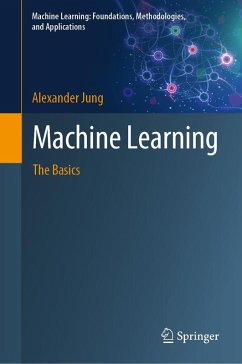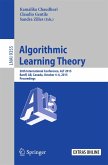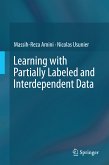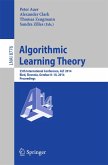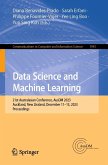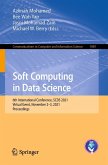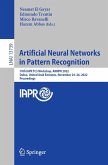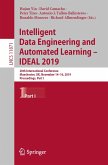Machine learning (ML) has become a commonplace element in our everyday lives and a standard tool for many fields of science and engineering. To make optimal use of ML, it is essential to understand its underlying principles.
This book approaches ML as the computational implementation of the scientific principle. This principle consists of continuously adapting a model of a given data-generating phenomenon by minimizing some form of loss incurred by its predictions.
The book trains readers to break down various ML applications and methods in terms of data, model, and loss, thus helping them to choose from the vast range of ready-made ML methods.
The book's three-component approach to ML provides uniform coverage of a wide range of concepts and techniques. As a case in point, techniques for regularization, privacy-preservation as well as explainability amount tospecific design choices for the model, data, and loss of a ML method.
Dieser Download kann aus rechtlichen Gründen nur mit Rechnungsadresse in A, B, BG, CY, CZ, D, DK, EW, E, FIN, F, GR, HR, H, IRL, I, LT, L, LR, M, NL, PL, P, R, S, SLO, SK ausgeliefert werden.
"The book under review matured from lecture notes ... . The structure and style strongly recommend the book as a thorough entry point for studying ML; the exercises and the references concluding each chapter reinforce concepts and also provide a curated guidance for further steps. ... The (text)book reaches a balance between mathematical details, overview of algorithms and examples, making it suitable for a wide range of readers, and further underlining the interdisciplinary character of machine learning." (Irina Ioana Mohorianu, zbMATH 1530.68002, 2024)

